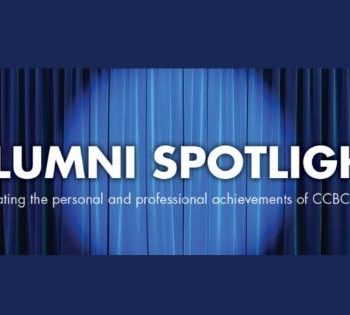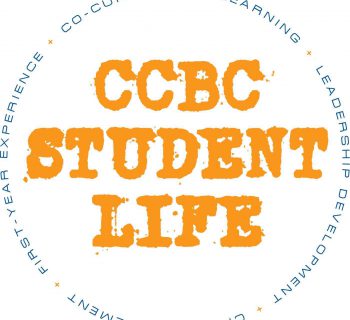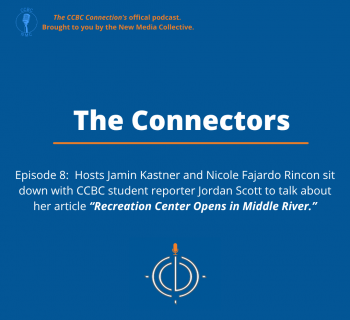Sierra Hunter
On Monday, March 5 the Student Government Association (SGA) held a financial literacy course in room 004A in the Student Services Center at CCBC Catonsville.
The hour-long event started at 2:30 with refreshments and food served throughout the seminar. The seminar began with a 30-second icebreaker.
The purpose of the workshop was for students to get comfortable talking about and making decisions on finances. Assistant director of CCBC Student Life, Daniel Sym, said, "the SGA wanted to have students be more aware of their spending habits, the ways that money can be saved or better spent, and how students can better plan long-term."
The guests received resource packets detailing topics like financial aid for students, advantages and disadvantages of a credit card, forms of saving and investing, understanding compound interest and more.
According to the Global Financial Literacy Excellence Center (GFLEC), 29 percent of working women demonstrate basic financial literacy skills compared to the 47 percent of working men.
"There is a stigma and sometimes embarrassment concerning talking about finances and things like how much money you might have compared to your neighbor and where your funds go,” Sym said. “It can be easy to spend money on going out to dinner, but difficult to delay that gratification in saving for larger or more important purchases."
The seminar explored how advertising affects the way people spend money. During the discussion, students were asked to identify the item being sold to them. To the surprise of the audience, none of them were able to recognize the Visa Advertisement. The point of the exercise was to explain how advertisers manipulate people into buying their product.
New Media Collective Member Destini Merrill expressed her favorite part of the seminar stating, “the most interesting fact that I learned at the seminar is that I can easily reach a million dollars by the time I'm 40 if I start to save NOW; at least 20 maybe 30 dollars a week. This is pretty interesting to me because I've always figured that not many people could reach that kind of amount of money and retire at that young of an age without having a prestigious job. Now I know that I can do it so long as I'm super smart with my money.
The event also included exercises that assist guests in comprehending their knowledge of finances like how to build a budget, the importance of credit and understanding how a person views and spend their money.
The average 18 to 24-year-old contributes nearly 30 percent of their monthly income on debt repayment, doubling the percentage paid since 1992, according to Adams & Moore.
CCBC student Kierra Hunter stated her opinion of the importance of the event. "I learned that you should start saving for retirement when you start working. I started to save when I got my first job consistently, but after a while, the hardest part of saving is staying consistent.” She continued, "I never put that much thought into how many times I pay a bill a month, thinking about it now I realized I need to start budgeting."
Attendance started out slow with guests trickling in throughout the event. At the end of the class, guests announced upcoming club events that are happening on campus.
"Finances are difficult to talk about and can sometimes be perceived as dry and boring, Syms continued. “I hope the event is another experience students can have towards a lifelong goal of making wise financial decisions."
For resources to improve your financial literacy:















This is such an interesting event, I wish I had known about this seminar. We see post all the time on social media about how school should of taught us how to save and stuff so it’s nice to see CCBC taking a step in that direction!
It’s nice that this is a free workshop offered on campus. I think this is something everyone could eventually benefit from, especially today’s age! Very informative!
This is a necessary step to helping students to become financially independent and not waste money.
Helping students to make better decisions is a great way for them to learn the value of financial organization, scheduling and budgeting. People must understand how to gain better financial stability.
This was a great event, that I wished I knew about! However, I have always said High schools should teach their students how to build credit and manage their money. These are life lessons we should learn young so when we become adults it’s not something we are just learning!
Great post!
I think financial stability is so important to learn before your first job so you learn how to save money correctly, and start saving for retirement early as well. Wish I could’ve gone to get more knowledge about these things.
Given the nature of financial literacy in the country; 29% for working women and 47% for working men, more workshops of this type could certainly be beneficial to not only students but the population in general. Many people don’t know the basic skills required to be financially stable as they go through their lives, but having even a basic understanding would help them on their way
I wish I could’ve been there to hear everything for myself and get the full experience, but I learned that budgeting correctly and saving on unnecessary purchases really makes a noticeable difference, if you simplify it there are only 2 things you can do with money, you can conserve it or consume it, so keeping that in mind helps me make the right decision when I pass a Chipotle or Chickfila